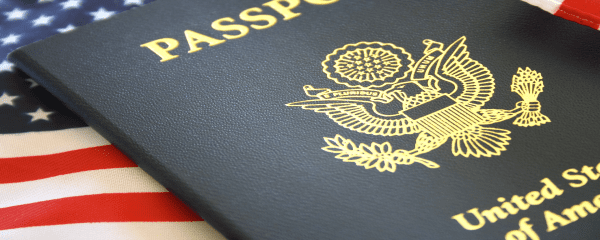For the third time in as many years, legislation has been introduced in Congress that would revoke the passports of US citizens with “seriously delinquent tax debts.”
Similar proposals failed in 2012 and 2013, when Congress tried to sneak this provision into the highway funding bill. And now, as on schedule, Sen. Ron Wyden (D-Ore.) has once again introduced the bill, complete with a passport revocation measure.
The Joint Committee on Taxation estimates this measure will raise $388 million in tax revenues over the next decade. That’s enough to pay for about 0.1% – one tenth of one percent – of estimated highway expenditures during that period.
In other words, the passport revocation measure has nothing to do with actually raising revenue. It has a lot more to do with showing US citizens “who’s the boss.” And the boss is not you.
A "seriously delinquent tax debt" means that you owe the IRS $50,000 or more. That may sound like a lot of money – and it is – but in reality, a $50,000 tax debt is pretty easy to ring up. For instance, let’s say you have a foreign account that you failed to declare on IRS Form 8938 in 2011, 2012, and 2013. Or you filed it “improperly.” That’s easy to do, because Form 8938 isn’t easy to complete.
This equates to a $10,000 penalty, per year, for a total of $30,000. Plus, the IRS can impose an additional penalty of $10,000 per month for each month after it notifies you of a problem, up to a maximum of $50,000. See what I mean?
Federal law generally prohibits the IRS from disclosing taxpayer data to other federal agencies. But the Wyden proposal gives the IRS permission to disclose the names of citizens with "seriously delinquent tax debts" to the State Department. Upon receiving this information, the State Department must revoke these citizens’ passports or passport cards. It also can’t issue new passports or passport cards to them.
Even if you don't have a seriously delinquent tax debt, the US government still might confiscate (or refuse to renew) your passport when it expires if:
-
A federal court has issued a warrant for your arrest
-
A federal or state court has ordered you not to leave the United States
-
Another country has requested your extradition
-
You owe more than $2,500 in delinquent child support payments.
Don’t get too comfortable if you don't fall into one of these categories. The Wyden bill includes a provision that would result in passport revocation or denial if you refuse to disclose your Social Security number when you apply for or renew your passport. Under current law, you’ll still get your passport if you refuse to disclose it, but you’ll pay a $500 fine for the privilege of maintaining your privacy.
In addition, Uncle Sam can make you a prisoner in your own country if you can’t complete a State Department “biographical questionnaire” to its satisfaction. This questionnaire isn’t required for most passport renewals, but if it is, you may be hard-pressed to come up with some of the requested information.
For instance, the feds may ask the dates and locations of all of your mother’s pre- and post-natal medical appointments and how long she was hospitalized when you were born. They may even want the names of everyone present at your birth.
For US citizens living in the US, having their passport confiscated or non-renewed may be a mere inconvenience, especially if they don’t travel frequently. But for US citizens living abroad, it can be a catastrophe.
Not long ago, a client told me about a friend of hers – a US citizen living in Panama – who couldn’t get his US passport renewed. The State Department rejected his “biographical questionnaire” three times. He’ll now need to come back to the US to live, since he doesn’t have a valid passport from any other country.
He’ll have to leave his friends and home behind. Not to mention his wife – she’s a Panamanian citizen and doesn’t have the right to even visit the US without a visa. Once he’s back in the US, he can sponsor her for US residence, but good luck with that process with a revoked passport.
The Wyden proposal is just the latest example of a global trend toward passport cancellations by many countries. Since international travel to almost anywhere demands a passport, requiring citizens to obey increasingly strict rules to obtain or renew this travel document is a highly effective mechanism of social control.
For instance, under UK law, the government can revoke a person’s passport – and even their citizenship – without a court hearing. Legislation before the Canadian Parliament, modeled on the UK law, would give that country the same power to strip passports and even citizenship from both naturalized and native-born Canadians.
No matter where you live and what passport you use to travel, initiatives like these make it more important than ever to get a second citizenship and passport. If you don’t qualify through marriage or ancestry, it’s possible to acquire a second passport in a handful of countries by making a qualifying contribution or investment. In exchange, you’ll receive citizenship for life and a passport.
It only makes sense to obtain a second passport, "just in case."
Mark Nestmann
Nestmann.com













